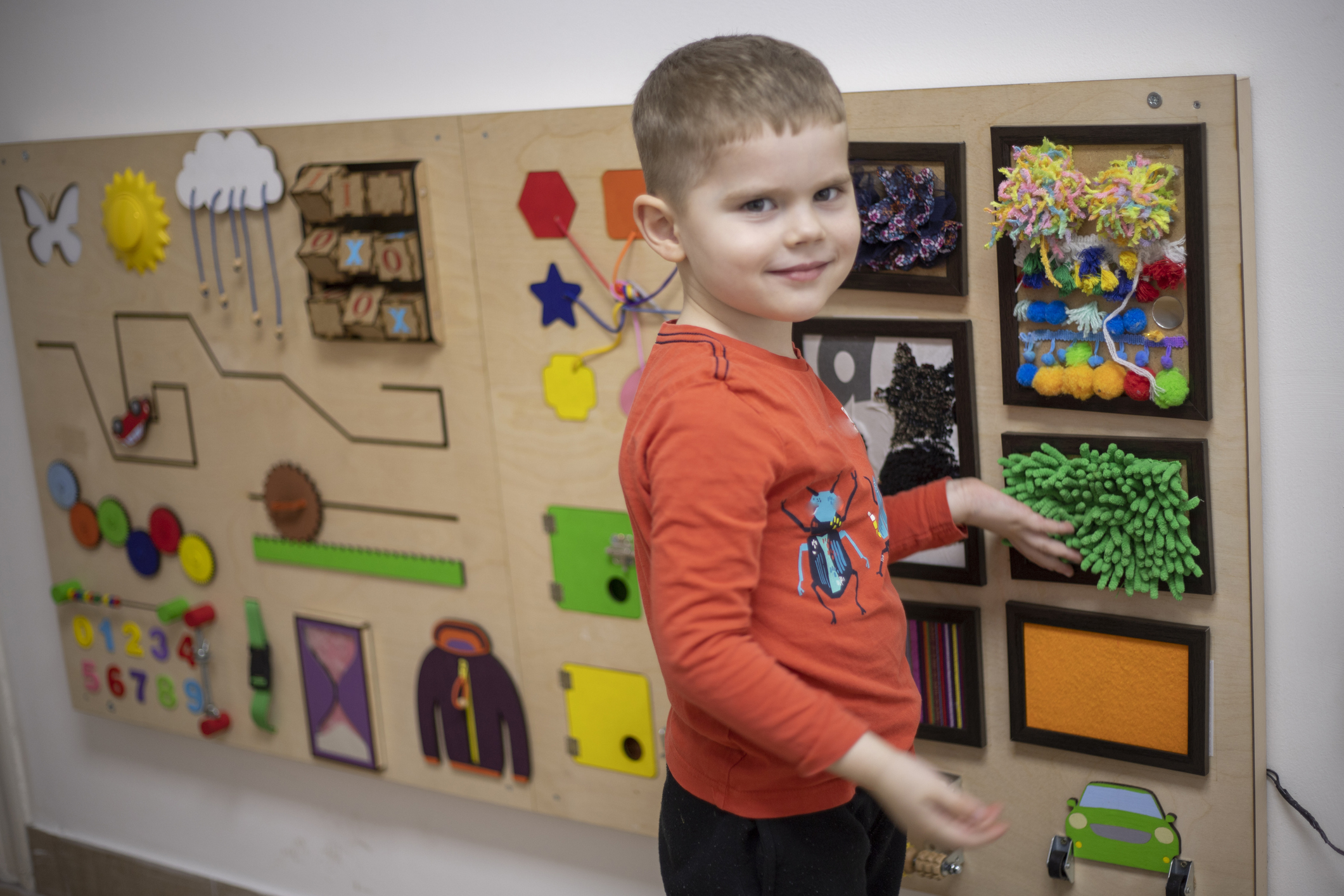Teaching can be an incredibly rewarding profession, but it also comes with its fair share of challenges. In today’s classrooms, many students have experienced trauma, which can have a significant impact on their behaviour and ability to learn. As teachers, it is crucial that we not only support our students but also prioritise our well-being to create a safe and nurturing environment.
In this blog post, we will explore the importance of self-care for teachers in trauma-informed classrooms and discuss strategies to promote well-being. We will delve into the signs of stress and burnout that teachers may experience, why it is crucial to recognise these signs and the long-term effects of untreated stress and burnout.
Furthermore, we will provide practical strategies for promoting self-care and well-being. We will explore mindfulness and relaxation techniques that can help alleviate stress, the importance of adopting a balanced diet and regular exercise, and the benefits of building supportive networks and relationships. Additionally, we will discuss the significance of setting and maintaining boundaries to prevent burnout and ensure a healthy work-life balance.
Creating a supportive work environment is also essential for teacher wellbeing. We will delve into the importance of school policies that prioritise teacher wellbeing, promoting a positive school culture that fosters support and collaboration, and involving all stakeholders in supporting teacher wellbeing.
Finally, we will discuss the implementation of a trauma-informed approach to support teachers. Understanding the impact of trauma on teachers is crucial in providing the necessary support. We will explore training and professional development opportunities to equip teachers with the tools and knowledge they need, as well as the importance of providing mental health support and resources.
As teachers, we have a responsibility not only to educate our students but also to prioritize our well-being. By promoting self-care and creating a supportive environment, we can ensure that both our students and ourselves thrive in trauma-informed classrooms. Stay tuned to discover practical strategies and insights to support your well-being as an educator.
Understanding the Importance of Self-Care for Teachers in Trauma-Informed Classrooms
Teachers play a vital role in the lives of their students, especially in trauma-informed classrooms. These classrooms are designed to support students who have experienced trauma, and as teachers, it is essential to understand the importance of self-care within this context.
1.1 The Impact of Trauma on Teachers
Teachers in trauma-informed classrooms often work with students who have experienced various forms of trauma, such as abuse, neglect, or witnessing violence. The constant exposure to these traumatic experiences can have a profound impact on teachers’ mental, emotional, and physical well-being. Understanding how trauma affects teachers is crucial in recognising the need for self-care.
1.2 The Role of Self-Care in Teacher Wellbeing
Self-care refers to the deliberate actions individuals take to promote their own physical, mental, and emotional health. For teachers in trauma-informed classrooms, self-care is not just a luxury but a necessity. It allows teachers to recharge, manage stress, and maintain a positive mindset, ultimately enhancing their ability to support their students effectively.
1.3 Benefits of Self-Care for Teachers
Prioritising self-care offers numerous benefits for teachers in trauma-informed classrooms. It helps reduce stress levels, prevent burnout, and improve overall mental and physical health. Engaging in self-care practices enables teachers to bring their best selves to the classroom, positively impacting their teaching effectiveness and the learning environment for their students.
1.4 Modeling Self-Care for Students
In addition to benefiting teachers themselves, practising self-care also sets a powerful example for students. By prioritising their well-being, teachers demonstrate the importance of self-care and teach students valuable life skills. Modelling self-care behaviours can inspire students to prioritise their own mental and emotional health, fostering a culture of well-being within the classroom.
1.5 Overcoming Barriers to Self-Care
While self-care is crucial, teachers often face various barriers that can impede their ability to engage in self-care practices. These barriers may include heavy workloads, lack of time, feeling guilty for taking time for themselves, or inadequate support systems. Identifying and addressing these barriers is essential in promoting self-care among teachers in trauma-informed classrooms.
Understanding the importance of self-care for teachers in trauma-informed classrooms lays the foundation for creating a supportive and nurturing environment. By recognizing the impact of trauma on teachers, acknowledging the role of self-care in teacher well-being, and understanding the benefits of self-care for both teachers and students, we can begin to prioritise self-care practices. In the following sections, we will explore strategies to promote self-care and support the well-being of teachers in trauma-informed classrooms.
Identifying Signs of Stress and Burnout in Teachers
Teachers in trauma-informed classrooms often face high levels of stress and are at risk of experiencing burnout due to the demands of their profession. It is crucial to identify the signs of stress and burnout in teachers early on to prevent further negative impacts on their well-being and job performance. In this section, we will explore why recognizing these signs is crucial, the common symptoms of stress and burnout, and the long-term effects of untreated stress and burnout.
0.1 The Importance of Recognizing Stress and Burnout
Recognizing the signs of stress and burnout in teachers is essential for several reasons. Firstly, it allows teachers to take necessary steps to address their well-being and prevent further deterioration. Secondly, by identifying these signs, school administrators and colleagues can provide support and resources to help alleviate stress and reduce the risk of burnout. Lastly, recognizing stress and burnout in teachers contributes to creating a more compassionate and understanding work environment.
0.2 Common Symptoms of Stress and Burnout
Stress and burnout manifest differently in individuals, but there are common symptoms that teachers may exhibit when experiencing high levels of stress or burnout. These symptoms can be physical, emotional, or behavioural. Physical symptoms may include frequent headaches, fatigue, sleep disturbances, or changes in appetite. Emotional symptoms may involve feelings of irritability, anxiety, or sadness, while behavioural symptoms can include increased absenteeism, decreased motivation, or withdrawal from social interactions.
0.3 Long-Term Effects of Untreated Stress and Burnout
If left unaddressed, chronic stress and burnout can have severe long-term effects on teachers’ well-being and job satisfaction. It can lead to physical health problems like cardiovascular issues, weakened immune systems, or digestive disorders. Additionally, untreated stress and burnout can negatively impact mental health, contributing to conditions such as depression or anxiety. Furthermore, they can result in decreased job performance, reduced effectiveness in the classroom, and ultimately, a higher likelihood of leaving the teaching profession.
Understanding the signs and symptoms of stress and burnout in teachers is the first step in supporting their well-being. By recognizing the importance of identifying these signs, being aware of common symptoms, and understanding the potential long-term effects of untreated stress and burnout, we can take proactive measures to address these challenges. In the following sections, we will explore strategies to promote self-care and provide support systems to help teachers manage stress and prevent burnout in trauma-informed classrooms.
Strategies for Promoting Self-Care and Wellbeing
Promoting self-care and well-being is crucial for teachers in trauma-informed classrooms to effectively manage stress and prevent burnout. In this section, we will explore various strategies that teachers can implement to prioritise their self-care and enhance their overall well-being. These strategies include practising mindfulness and relaxation techniques, adopting a balanced diet and regular exercise, building supportive networks and relationships, and setting and maintaining boundaries.
- Practicing Mindfulness and Relaxation Techniques
Engaging in mindfulness and relaxation techniques can significantly reduce stress levels and promote overall well-being. Teachers can incorporate practices such as deep breathing exercises, meditation, or yoga into their daily routines. These techniques can help teachers become more present, manage their emotions, and cultivate a sense of calm amidst the demands of their profession.
1.1 Deep Breathing Exercises
Deep breathing exercises are simple yet powerful tools for managing stress and promoting relaxation. Teachers can take a few moments throughout the day to focus on their breath, inhaling deeply through the nose and exhaling slowly through the mouth. This practice helps activate the body’s relaxation response, reducing tension and promoting a sense of calm.
1.2 Meditation
Meditation is a practice that involves focusing the mind and achieving a state of mental clarity and emotional calm. Teachers can allocate dedicated time each day to engage in meditation, whether it’s through guided meditation apps, mindfulness exercises, or sitting quietly in a peaceful environment. Regular meditation can help reduce stress, improve focus, and enhance overall well-being.
1.3 Yoga and Stretching
Yoga combines physical movement, breath control, and mindfulness to promote relaxation and improve physical strength and flexibility. Teachers can incorporate yoga or stretching exercises into their daily routine, either by attending classes or following online tutorials. Yoga not only benefits the body but also helps calm the mind and reduce stress.
- Adopting a Balanced Diet and Regular Exercise
A balanced diet and regular exercise are essential components of self-care and overall well-being. Teachers can prioritise their nutrition and physical fitness to ensure they have the energy and resilience to cope with the demands of their profession.
2.1 Balanced Diet
Eating a balanced diet rich in fruits, vegetables, whole grains, lean proteins, and healthy fats provides the necessary nutrients for optimal physical and mental health. Teachers can plan and prepare nutritious meals and snacks, ensuring they fuel their bodies with the nutrients needed to maintain energy levels and support overall well-being.
2.2 Regular Exercise
Regular physical exercise is not only beneficial for physical health but also plays a crucial role in managing stress and improving mood. Teachers can incorporate exercise into their daily routine, whether it’s through activities like walking, jogging, cycling, or participating in fitness classes. Engaging in regular exercise releases endorphins reduces stress hormones, and promotes a sense of well-being.
- Building Supportive Networks and Relationships
Building supportive networks and relationships is vital for teachers to feel connected, validated, and understood. Teachers can seek out colleagues, mentors, or support groups who can provide emotional support and serve as a sounding board for their challenges and triumphs.
3.1 Colleague Collaboration
Collaborating with colleagues allows teachers to share ideas, resources, and strategies for managing stress and promoting self-care. Teachers can create opportunities for collaboration, such as participating in team meetings, professional development workshops, or forming support groups within the school community.
3.2 Mentorship
Having a mentor can provide invaluable guidance and support for teachers, particularly in navigating the challenges of trauma-informed classrooms. Mentors can offer advice, share experiences, and help teachers develop effective coping strategies. Teachers can seek out mentorship opportunities within their school or professional networks.
3.3 Support Groups
Joining support groups specifically designed for teachers in trauma-informed classrooms can provide an empathetic and understanding community. These groups offer a safe space for teachers to share their experiences, seek advice, and receive support from others who can relate to their unique challenges.
- Setting and Maintaining Boundaries
Setting and maintaining boundaries is crucial for teachers to prevent burnout and maintain a healthy work-life balance. Teachers can establish clear boundaries between work and personal life, ensuring they have time for self-care and activities outside of their teaching responsibilities.
4.1 Time Management
Effective time management skills help teachers prioritise tasks, allocate time for self-care, and avoid excessive workloads. Teachers can utilise tools such as planners, calendars, or time-blocking techniques to manage their time efficiently and ensure they have dedicated periods for self-care activities.
4.2 Learning to Say No
Teachers often feel compelled to take on additional responsibilities or tasks, leading to increased stress and decreased time for self-care. Learning to say no when necessary is crucial for setting boundaries and maintaining a healthy work-life balance. Teachers should prioritise their well-being and recognise their limits.
By implementing these strategies, teachers can prioritise their self-care and enhance their overall well-being in trauma-informed classrooms. Practising mindfulness and relaxation techniques, adopting a balanced diet and regular exercise, building supportive networks and relationships, and setting and maintaining boundaries all contribute to creating a healthier and more sustainable teaching experience. In the next section, we will explore the importance of creating a supportive work environment that prioritises teacher wellbeing.
Creating a Supportive Work Environment
Creating a supportive work environment is essential for promoting teacher wellbeing in trauma-informed classrooms. When teachers feel supported and valued, they are better equipped to manage the challenges they face and provide effective support to their students. In this section, we will explore the importance of school policies that prioritise teacher wellbeing, promote a positive school culture, and involve all stakeholders in supporting teacher wellbeing.
2.1 Importance of School Policies that Support Teacher Wellbeing
School policies play a crucial role in creating a supportive work environment for teachers. Policies that prioritise teacher well-being demonstrate a commitment to valuing and supporting educators. These policies may include provisions for reasonable work hours, workload management, professional development opportunities, and access to mental health resources. By implementing such policies, schools can foster an environment that recognises and addresses the unique challenges faced by teachers in trauma-informed classrooms.
2.2 Promoting a Positive School Culture
A positive school culture is a key component of a supportive work environment. When teachers feel connected, respected, and supported by their colleagues and administrators, it enhances their overall job satisfaction and well-being. Schools can promote a positive culture by encouraging collaboration, recognising and celebrating teachers’ achievements, and fostering a sense of community through team-building activities or staff appreciation events.
2.3 Involving All Stakeholders in Supporting Teacher Wellbeing
Supporting teacher wellbeing requires the involvement of all stakeholders, including administrators, colleagues, parents, and the wider school community. By creating a collaborative and inclusive approach, schools can ensure that teachers receive the support they need. Administrators can facilitate regular check-ins with teachers, provide resources and professional development opportunities, and encourage open communication. Colleagues can offer support and collaboration, share best practices, and provide a listening ear. Parents and the wider school community can contribute by recognising and appreciating the efforts and challenges faced by teachers in trauma-informed classrooms.
By creating a supportive work environment, schools can demonstrate their commitment to teacher wellbeing and foster a culture that values and supports educators. Through policies that prioritise teacher wellbeing, promote a positive school culture, and involve all stakeholders, schools can create an environment where teachers feel empowered, supported, and motivated to provide the best possible support to their students. In the next section, we will discuss the implementation of a trauma-informed approach to support teachers in their work.
Implementing a Trauma-Informed Approach to Support Teachers
Implementing a trauma-informed approach to support teachers is crucial in recognising and addressing the impact of trauma on their well-being. By understanding the unique challenges faced by teachers in trauma-informed classrooms, providing training and professional development opportunities, and offering mental health support and resources, schools can better support teachers in their work. In this section, we will explore the importance of understanding trauma and its impact on teachers, training and professional development opportunities, and the provision of mental health support and resources.
- Understanding Trauma and Its Impact on Teachers
To effectively support teachers in trauma-informed classrooms, it is essential to have a deep understanding of trauma and its impact. Schools should provide teachers with comprehensive training on trauma-informed practices, including the neurobiology of trauma, recognising trauma triggers, and understanding how trauma affects students’ behaviour and learning. By equipping teachers with this knowledge, they can develop strategies to address trauma-related challenges while also recognising the impact it may have on their well-being.
- Training and Professional Development Opportunities
Providing ongoing training and professional development opportunities is crucial for supporting teachers in trauma-informed classrooms. Schools can offer workshops, seminars, or conferences focused on trauma-informed practices, self-care, and strategies for managing stress and preventing burnout. These opportunities allow teachers to enhance their skills, learn from experts in the field, and share experiences and strategies with their colleagues.
- Providing Mental Health Support and Resources
Teachers in trauma-informed classrooms may encounter complex situations that can take a toll on their mental health. Schools need to provide mental health support and resources to ensure teachers have access to the assistance they may need. This can include access to counselling services, creating a supportive space for teachers to share their experiences and concerns, and providing information on self-care and stress management techniques. Schools can also establish partnerships with local mental health organisations or professionals to offer additional support and resources.
- Creating a Culture of Open Communication and Support
Schools should foster a culture of open communication and support, where teachers feel comfortable discussing their experiences, challenges, and needs. This can be facilitated through regular check-ins with administrators, peer support groups, or creating opportunities for teachers to engage in reflective practices. By creating a safe and supportive environment, teachers can feel validated, understood, and better equipped to navigate the complexities of trauma-informed classrooms.
By implementing a trauma-informed approach to support teachers, schools can ensure that educators receive the necessary tools, resources, and support to effectively manage the challenges they may encounter. Understanding trauma and its impact, providing training and professional development opportunities, offering mental health support and resources, and fostering a culture of open communication and support all contribute to creating an environment where teachers feel valued, supported, and empowered in their work.







